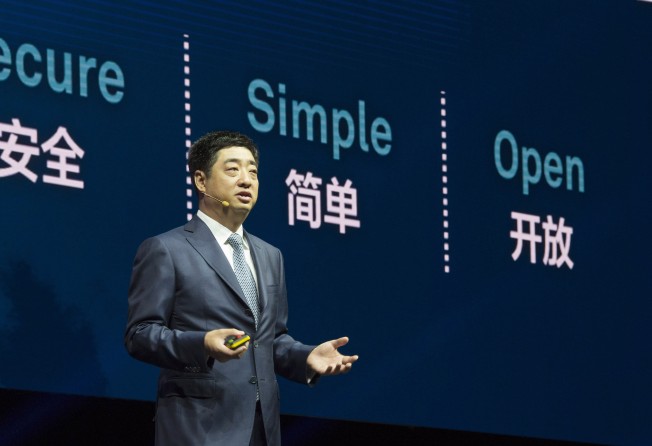Accusers must prove China tech companies are risks to security
- With a senior Huawei official in Canada facing extradition to the US, the firm’s chairman says ‘ideology and politics’ are driving the damaging Western claims

The future of technology is an issue of trust. Huawei, China’s leading tech company and a pioneer in the development of 5G, the next generation of telecommunications, is viewed suspiciously by some Western governments and their allies because of claimed connections to the Chinese government. Connectivity and speed are what sets 5G apart and the thought of a single nation having access to data and information that gives it power over a global network that is likely to reach into every corner of our lives is, to many, an unacceptable prospect. With contracts being signed in preparation for roll-outs next year, now is the time for accusations to be backed by evidence.
Huawei’s chairman, Ken Hu Houkun, made precisely that point this week, his message to accusers being: “If you have proof or evidence, it should be made known”. Responding to much-voiced accusations that his firm’s equipment is a security risk, he countered that “ideology and politics” are driving the claims. There are ample grounds to side with such a view: the governments that have imposed bans on Huawei or are considering such a move are allies of the United States, which is in the midst of a trade war with China. Adding to tensions, Sabrina Meng Wanzhou, the firm’s chief financial officer and daughter of its founder, is on bail in Canada awaiting an extradition hearing to face charges in the US that Huawei violated American sanctions on Iran.
The timing of the Meng case and US President Donald Trump’s suggestion that he would be willing to intervene gives it a political tone; the Vancouver court has to take this into account in its decision. But the wider issue is that the US views China as its biggest rival and the innovative products of tech firms such as Huawei and ZTE a threat. Huawei is the world’s second-biggest manufacturer of smartphones and it has won plaudits for their innovative features. US government agencies and their contractors are prohibited from using the technology of Chinese telecommunications firms for reasons of national security, a move that Japan intends to follow, while Australia and New Zealand have barred Huawei from 5G networks and Britain, Canada and Germany are weighing the risks.
Global connectivity will improve the world. But mistrust is leading to technological nationalism that risks restricting innovation and creating tech islands with differing standards that will make connectedness difficult or impossible. Greater transparency will help Huawei, although satisfying accusers that its networks and equipment are designed for spying and hacking is not easy in the midst of Trump’s trade war. Governments and media organisations that claim they have evidence have to prove their assertions.